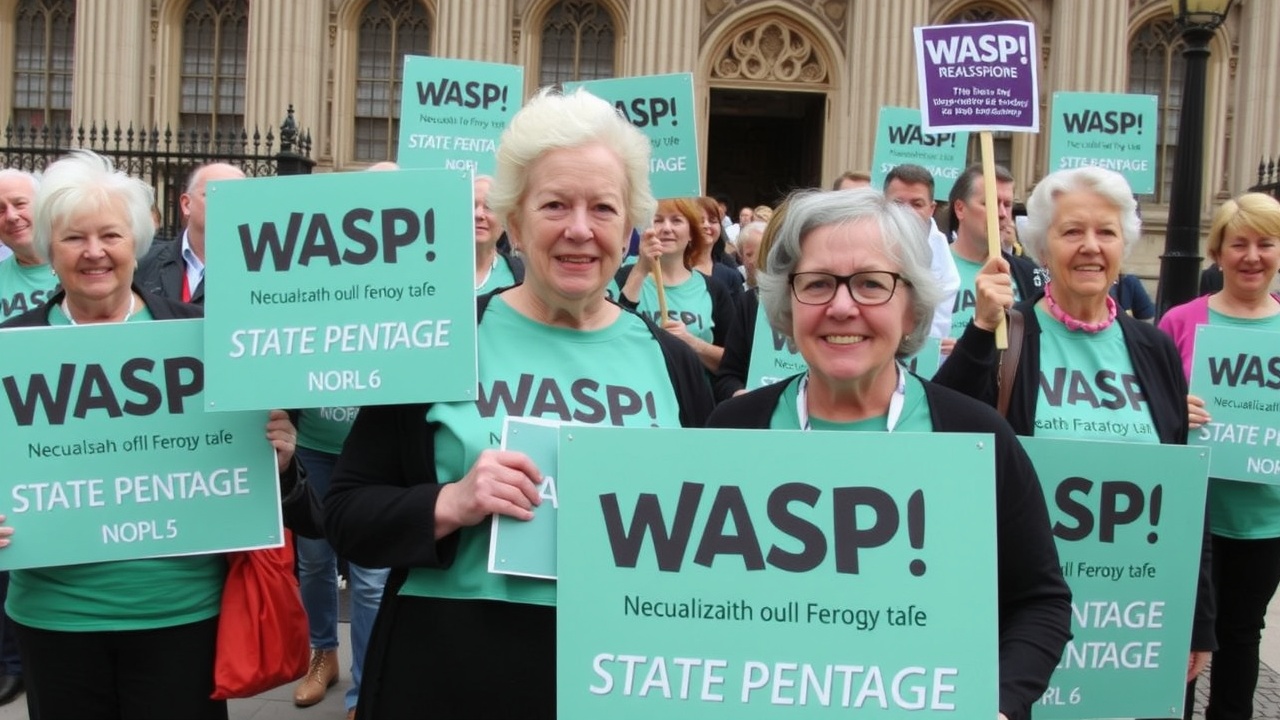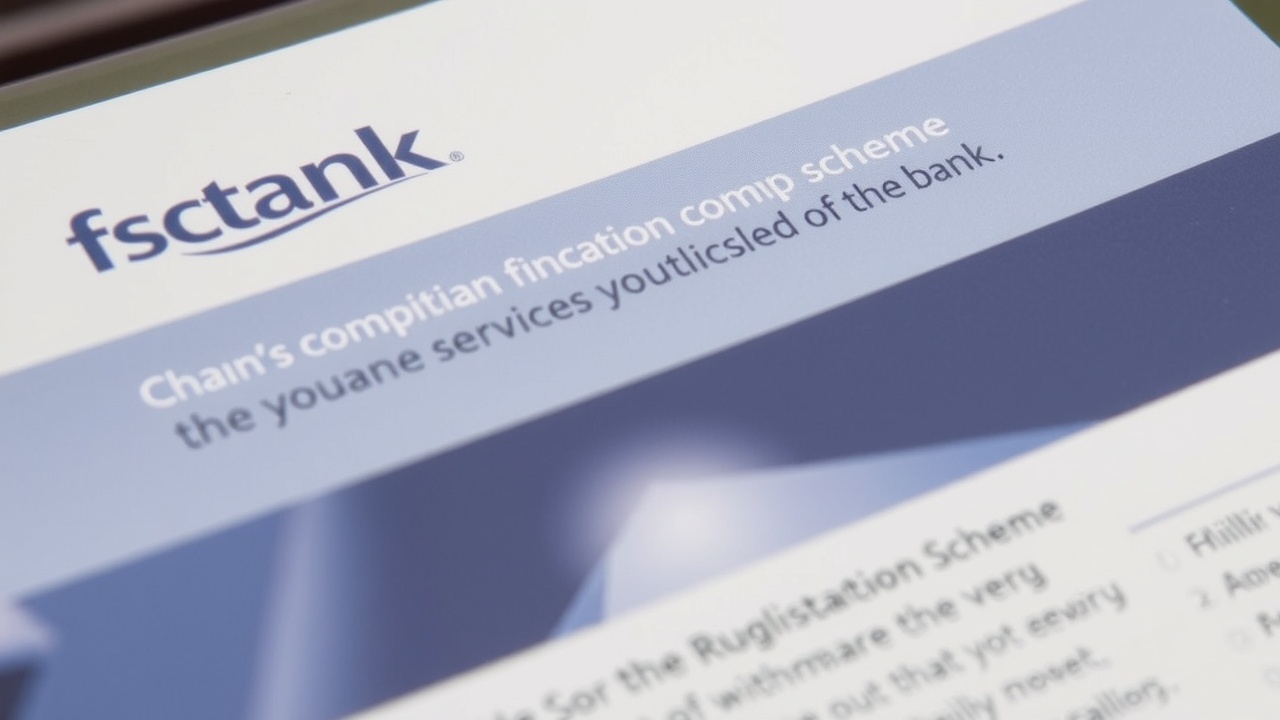
According to the government, parliament will discuss compensation for women impacted by changes to their state pension age next month
After the government declared that it would hold a parliamentary debate regarding the introduction of a compensation scheme, the campaign group Waspi (Women Against State Pension Inequality) scored a victory.
This follows the government's earlier decision to not pay women born in the 1950s who were impacted by its improper communication of the state pension age increase.
The Labour announcement shortly before Christmas contradicted the compensation recommendation of a parliamentary ombudsman, which recommended that those impacted receive a payment of between 1,000 and 2,950. Labour, however, asserted that there was no proof of "direct financial loss".
Prime Minister Keir Starmer made the following argument in a December Commons speech: "In those situations, the taxpayer just cannot afford the burden of tens of billions of pounds of compensation, even though 90% of those affected were aware of the change.
Many MPs, including Labour backbenchers, and Waspi women were outraged by the news and demanded a Commons vote or a U-turn.
However, a parliamentary discussion on the matter has been scheduled for next month. It follows the collection of more than 157,000 signatures on an online petition created by the Waspi campaign group. The petition asked the government to develop a compensation plan by March 21, 2025.
What time does parliament hold the Waspi debate?
The Waspi petition will be discussed by Parliament on March 17, 2025. For women born in the 1950s who were impacted by changes in the state pension age, it will address demands to "fairly compensate" them.
On social media site X, the Waspi group wrote: "On March 17, there will be a debate regarding our petition. This gives all MPs a chance to express support for compensation and implementing the PHSO's recommendations, but it does not impose any obligations on the government. Kindly write to your Member of Parliament, requesting that they come and advocate for the compensation of their WASPI constituents.
"This is a bizarre and totally unjustified move, which will leave everyone asking what the point of an ombudsman is if ministers can simply ignore their decisions," said Waspi Chair Angela Madden in reference to Labour's refusal to pay compensation.
The vast majority of MPs support Waspis' demands for just compensation, and all alternatives are still open. In order to ensure that justice is served, parliament must now look for a different way to bring this matter to the attention of the government if it is unable to take action to correct the situation.
"Serious embarrassment" for Scottish Labour, according to First Minister John Swinney, was the UK government's decision to refuse compensation to women impacted by changes to the state pension age.
What is causing Labour to refuse to compensate Waspi?
Although it has denied any financial compensation, the government has expressed regret for the delay in informing women of the increase in their state pension age.
Liz Kendall, the secretary of state for the Department for Work and Pensions (DWP), stated in a December Commons speech: "We cannot accept that in the vast majority of cases, sending a letter earlier would have affected whether women knew their state pension age was rising.
The government does not think it would be fair or proportionate to use taxpayer funds to pay all women a flat rate at a cost of up to £105 billion. Not least of all, the previous administration left us with a 22 billion dollar hole in the public finances and failed to allocate a single penny for any kind of compensation plan.
Both Starmer and Rachel Reeves, the chancellor, defended the ruling. "We looked closely at the ombudsman's recommendations, and they stated that about 90 percent of women did know that these changes were coming," Reeves said, acknowledging that women who were impacted by the state pension age changes were disappointed by the decision.
In my capacity as chancellor, I also have to account for every dollar spent by taxpayers.
Following weeks of ministerial remarks indicating that a Waspi update was imminent, the unexpected announcement in December raised expectations that a compensation package would be unveiled shortly.
According to Kendall, the government did accept accountability for poor management in the early 2000s, which resulted in a 28-month delay in letters to women.
The government will collaborate with the ombudsman to develop an "action plan" to stop future occurrences of this kind of situation, she continued.
After nearly ten years of advocacy by the Waspi group, which draws attention to the predicament of women born in the 1950s who lost money as a result of poorly explained and abrupt changes to the state pension age, the announcement was made.
Last March, the DWP was found guilty of "maladministration" by the Parliamentary and Health Service Ombudsman for the way it had conveyed these changes.
To enable the payment of compensation, the Ombudsman urged parliament to secure funding of up to 10p5 billion.
What has the government stated about Waspi in the past?
Last year, after the ombudsman's decision, members of parliament pushed the then-Conservative government to announce compensation before the summer break, but they failed to do so.
Later, former pensions minister Steve Webb issued a warning, saying that any decision regarding Waspi women's redress would unavoidably be delayed by the general election.
Following Labour's election victory, not much was said about Waspi, and it was not mentioned in the party's manifesto.
However, toward the end of last year, ministers began to discuss the matter. "We are looking at the complexity of those cases," stated Emma Reynolds, the pensions minister who was later replaced by Torsten Bell: "The ombudsman took six years to look at what are a range of complex cases.
"I was the first minister for eight years to meet with the Waspi campaigners and listen to their concerns," she subsequently stated. On this problem, we are moving quickly. In order to update Dot, we hope to visit the house shortly. the general public about our next course of action.
Opposition Labour ministers backed the campaign, according to critics of the decision to deny Waspi compensation.
Both Kendall and Starmer have previously discussed the "injustice" that the women experienced, according to the Waspi campaign group.
The current deputy prime minister, Angela Rayner, told the BBC in 2019 that the government had failed women born in the 1950s. Their pension was stolen. .
For what reason did the Ombudsman suggest compensation?
As a result of the DWP's "maladministration" in communicating the changing pension age, the Ombudsman recommended that each affected individual receive compensation ranging from 1,000 to 2,950.
According to its findings, impacted women ought to have been given at least 28 months' additional notice before the state pension age increased. Many women claim they didn't have enough time to modify their retirement plans and make financial preparations.
What will the Waspi campaign do next?
On March 17, Waspi activists will be anticipating the parliamentary discussion.
"We are not giving up," the Waspi chair told BFIA in December. Parliament has been called upon to intervene by the parliamentary ombudsman, and a cross-party group of MPs is acting to force a vote on the compensation principle.
"Keir Starmer has yet to hear the end of this problem.
Brian Leishman, a Labour backbencher, told the Commons last year that he was "appalled" by the government's decision, saying, "This is an incredible let-down." I believe that waspi women do not require words of disappointment or vacuous declarations. Justice is what they require.
In addition, Torbay's Liberal Democrat MP Steve Darling criticized the lack of compensation, calling it "nothing more than a betrayal of Waspi women."
"This decision by the government will shock and horrify millions of women throughout the United Kingdom," he responded. They cannot use the fact that our economy is in a terrible state because they inherited it.
The government may also be under pressure from charities. It is not "credible for the government to contradict the ombudsman's painstaking report when it comes to liability for compensation," according to Caroline Abrahams, charity director at Age UK.
"Everyone is aware that the public finances are under tremendous strain, but the government shouldn't make matters worse by implying that there is no justification for compensation," she continued. Their sense of injustice will be heightened by the fact that many of the impacted women will also be dealing with the loss of their Winter Fuel Payment this year.
Even though the parliamentary debate has been scheduled, Downing Street has stated that there are "no plans" for a vote on whether or not women impacted by changes to the state pension age should receive compensation, so there is currently no indication that the situation will change.














Leave a comment on: Waspi update: a date for a parliamentary debate on compensation has been set